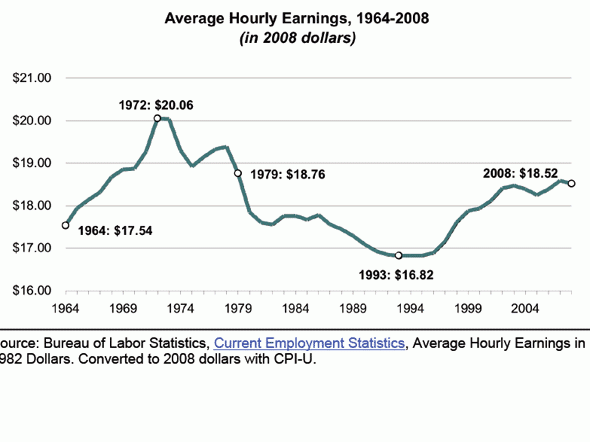Quote:
Originally Posted by msdivy  TA plenty of medical schools teach medicine, but still there many diseses for which there is no cure and people still die  . . |
A meltdown would a global pandemic which reduces the population of the world. Eg Spanish flu in 1918.
Last I checked, doctors are saving people who otherwise would have died. So quite a wrong analogy.
As for 6 year old chart, here let me give you latest charge,
I finally got them
CHARTS: Here's What The Wall Street Protesters Are So Angry About...
charts for your reference. Remember, these are all data, not opinions
First lets look at unemployment charts
letsstartwiththeobviousunemploymentthreeyearsafterthefinancialcrisistheunemploymentrateisstillattheh anditsnotjustconstructionworkerswhocantfindjobsthemediandurationofallunemploymentisalsonearanalltime
Unemployment all around. This is one metric we can use to say, "RECESSION".
Now lets look at the money.
Recession should mean an overall reduction, overall market negativity, lower profits.
What if that is not the case.
The OWNERS, or the upper class, is seemingly not getting recession at all.
How.
Look at corporate profits

Maybe economy is growing and the corporates are losing money? Well that is not the case either. Corporate profits as percentage of economy.
corporateprofitsasapercentoftheeconomyareneararecordalltimehighwiththeexceptionofabriefhappyperiodin
If you see the above chart, you will see that the corporate profits have actually dipped only around 2008-2009, right now they are at an all time high. What recession
Now lets come to viveks query about wealth redistribution.

CEO pay used to be 50X of worker pay in 1950s, now its 350X (2006 data, could not find newer data)
Also look at average hourly earnings of normal people

So while corporate profits as percentage of economy has grown, wages as percentage of economy has gone down
inshortwhileceosandshareholdershavebeencashinginwagesasapercentoftheeconomyhavedroppedtoanalltimelow
Also look at the share of the top 1% in the pre tax income
ofcourselifeisgreatifyoureinthetop1ofamericanwageearnersyourehaulinginabiggerpercentageofthecountrys
Lots of other stats on that page.
Just go through them.
Recession came, and then corporates bounced back, with record earnings, but did the worker get a share of the pie?
Economics in classrooms of MBA schools may teach you a lot of theory, but all principals like
1. Demand and supply
2. Wage and skill distribution
3. Earnings vs standards of living
All this goes for a toss when you have a pretend free economy.
For example, competition is supposed to get you cheap broadband? right?
Unfortunately, in many parts of the world, in most of the areas you have duopolies or monopolies
Ditto in other fields
Through lobbying and campaign contributions, corporations can buy laws, restrict freedoms, and get away with anything.
Another factor which is touted is that the richest pay the most taxes!
Here is another chart on rich vs poor taxes. Richest pay the highest taxes because they earn the most
asthenationsrichestpeopleoftenpointouttheydopaythelionsshareoftaxesinthecountrytherichest20pay64ofth
I am no economist, but when I see the world economy, esp big ticket economies, after every recession recovery, the recovery of the worker is dwarfed in comparison to the recovery and rise of the owners.
 (2)
Thanks
(2)
Thanks

 (1)
Thanks
(1)
Thanks

 (3)
Thanks
(3)
Thanks
 (1)
Thanks
(1)
Thanks

 (1)
Thanks
(1)
Thanks

 (1)
Thanks
(1)
Thanks
 (1)
Thanks
(1)
Thanks
 (1)
Thanks
(1)
Thanks

 (1)
Thanks
(1)
Thanks


 (1)
Thanks
(1)
Thanks









